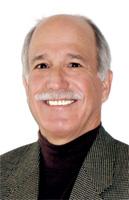A core premise of Working Wider is that the external environment moves and morphs faster than strategy and internal work practices. In coping, leaders call for consecutive, rapid changes that seek to be responsive but are perceived as hyper-reactive and inefficient as the TSA’s recent response to the so-called “underwear bomber”. The challenge is to drive change calmly as well as quickly – a tall order.
The research that gave birth to this site revealed that leaders who were distinctly clearer about the boundaries of their business model changed faster and with less distress than others. This clarity enabled them to make better choices as well as explain them.
For example, the CEO and COO of Aeropostale each told me how they had avoided expansion opportunities that added complexity. Aero expanded slowly into Canada and at the time of my interview, had yet to open a store in Quebec province. Similarly, their first expansion in the Middle East is managed at arms-length through license rather than direct control.
Aero choose to manage supply chain risk by establishing deeper relationships with fewer suppliers than manage the complexity of having many. When currency market fluctuations cut sharply into their Turkish suppliers’ business, Aero’s deeper relationship generated a pro-active and bi-lateral commitment that initiated adjustments that worked for both parties.
Clarity provides the foundation for conviction which in turn enables customers and employees to draw connections between changes. Clarity fuels a strong point of view that helps leaders filter environmental signals from noise for employees and customers. The real key to allocating scarce resources comes from choosing what not to do.
Ironically, clarity stimulates the active experimentation necessary when working beyond normal boundaries. Good experimentation depends on having a strong hypothesis. Clarity about what’s in or out of the business model makes defining the hypothesis much easier.
My research identified five domains of clarity that were common across effective leaders:
- Clarity of cause – Amazon’s legendary customer service is grounded in Jeff Bezo’s commitment to providing the best, retail experience anywhere in the world. In an interview with a former board member, he described Bezos’ over-the-top commitment as so strong (including a desire to “become the company of choice for the world”) that at times it sowed conflict within board meetings relative to the cost incurred by policies such as free shipping and liberal return guidelines.
- Clarity of competence – Emerson Electric shapes its acquisition strategy to leverage its unique strength at operating a portfolio of complex, global businesses. They target successful companies that they can take to the next level using these skills.
- Clarity of customer – Only 3% of Google’s recent revenue comes from commercial products and services. While the bulk of their revenue comes from advertising, the Google’s customer in developers mind is the end user searching for information.
- Clarity of control – Working wider dramatically changes what you can control. Apple provides a contrarian example through their closed operating system and legendary secrecy regarding new products. Apple is a uniquely high control company in an increasingly open world of technology. This just underscores how important clarity and conviction versus the path chosen.
- Clarity of conversation – Leaders stimulate and spotlight the most critical conversations for competing wider. Joe Sigrist, the leader of Polycom’s Video Conferencing business describes his job as walking the halls to turn what he describes as binary problems into broader conversations that lead to analog solutions.
You can amplify and add to this list from your experience. The bottom line is change pushes all of us beyond our familiar boundaries. When the outside world is unfamiliar, we are more dependent on inner clarity. By providing business model clarity, leaders equip their people to work wider.

 I'm Christopher Meyer - author of Fast Cycle Time, Relentless Growth and several Harvard Business Review articles.
I'm Christopher Meyer - author of Fast Cycle Time, Relentless Growth and several Harvard Business Review articles. 
Great stuff… wonder, too, whether some effective leaders generate calm (or at least focus) through clarity of competitors… Intel’s Andy Grove, etc. …. nothing more galvanizing than a threat?